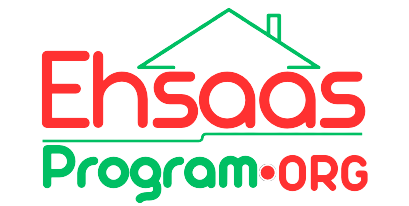Introduction
In the pursuit of fostering sustainable development and economic empowerment, the Benazir Income Support Programme (BISP) in Pakistan has extended its reach beyond financial assistance. This comprehensive guide delves into the BISP Skill Development Program, a visionary initiative aimed at equipping individuals with the skills needed to break the chains of poverty and build a brighter future.
**1. The Genesis of BISP Skill Development Program
The BISP Skill Development Program is an integral component of the broader initiative to uplift vulnerable families. Recognizing that financial aid alone might not be sufficient, the program aims to address the root causes of poverty by providing individuals with the skills necessary to secure meaningful employment and contribute actively to the economy.
**2. Key Objectives of the Skill Development Program
Breaking the Cycle of Poverty: The program seeks to break the generational cycle of poverty by empowering individuals with skills that are in demand in the job market.
Enhancing Employability: Focused on enhancing the employability of beneficiaries, the program identifies key sectors and professions that align with the evolving needs of the economy.
Promoting Entrepreneurship: Beyond traditional employment, the program encourages entrepreneurship by providing training in business management and related skills, fostering a culture of self-reliance.
**3. Target Demographics: Inclusivity and Reach
Youth Empowerment: The program places a special emphasis on empowering the youth. Recognizing the potential of the younger generation, BISP strives to provide them with the tools needed to navigate the competitive job market.
Women's Involvement: In line with BISP's commitment to gender inclusivity, the Skill Development Program actively encourages the participation of women. By equipping them with diverse skills, the program contributes to gender equality and empowerment.
Rural and Urban Focus: The program is designed to address the unique challenges faced by both rural and urban populations. Tailored courses and training programs consider the specific needs of each demographic.
**4. Skill Development Courses and Training Programs
Technical and Vocational Training: Courses in technical and vocational fields are offered to align with the demands of the job market. This includes training in areas such as information technology, mechanics, electronics, and healthcare.
Entrepreneurial Skills Development: Recognizing the importance of entrepreneurship, the program offers training in business development, financial management, and marketing to empower individuals to start and manage their businesses.
Digital Literacy Programs: Given the increasing reliance on technology, digital literacy programs are incorporated to ensure that beneficiaries are well-versed in the use of digital tools and platforms.
**5. Success Stories and Impact
Elevating Lives: Numerous success stories underline the transformative impact of the Skill Development Program. Beneficiaries who have completed the training programs often find themselves better positioned to secure employment or initiate entrepreneurial ventures.
Community Development: Beyond individual success stories, the program contributes to the development of communities. By nurturing a skilled workforce, BISP plays a role in enhancing the overall socio-economic landscape.
**6. Challenges and Mitigation Strategies
Infrastructure and Access: Challenges related to infrastructure and access are acknowledged. Efforts are being made to expand the reach of the program to remote areas and address issues related to training facilities.
Evolving Industry Demands: The program remains adaptable to evolving industry demands. Regular assessments are conducted to ensure that the skills being taught are relevant and align with the changing needs of the job market.
**7. Collaborations and Partnerships
Public-Private Partnerships: BISP engages in strategic partnerships with both public and private entities to enhance the effectiveness of the Skill Development Program. Collaborations with industry leaders ensure that training programs are tailored to industry standards.
International Cooperation: Collaboration with international organizations and foreign governments brings in expertise and resources. Exchange programs and joint initiatives contribute to the global perspective of skill development.
**8. Future Prospects and Continued Innovation
Expanding Program Reach: BISP envisions expanding the reach of the Skill Development Program to benefit an even larger segment of the population. Plans are underway to establish additional training centers and broaden the range of courses offered.
Integration with Ehsaas Program: Integration with the broader Ehsaas Program ensures a holistic approach to poverty alleviation. Skill development is seen as an integral component of the comprehensive strategy to uplift marginalized communities.
Conclusion
In conclusion, the Benazir Income Support Programme's Skill Development Program stands as a beacon of hope, offering a transformative path to economic empowerment. By equipping individuals with the skills needed to thrive in the modern economy, BISP not only uplifts individuals and families but contributes to the overall progress of the nation. As the program continues to evolve and adapt, it is poised to play a pivotal role in shaping a future where every individual has the opportunity to unlock their full potential and contribute meaningfully to society.

